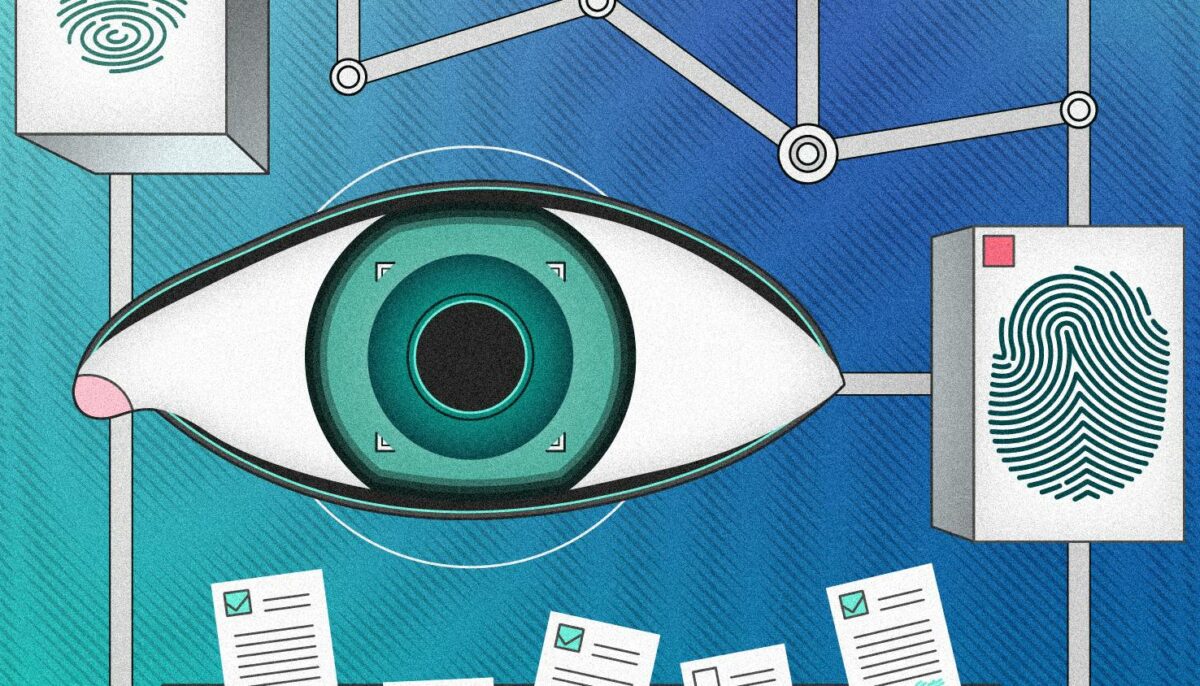In Lebanon, passports, drivers’ licenses, work permits, residency permits, and humanitarian aid all use systems that require biometric data, such as unique fingerprints or iris scans of citizens, residents, and refugees.
In 2017, the newly passed electoral law stated that voters would use “magnetic voting cards” to vote in the upcoming parliamentary elections, but the Council of Ministers later voted to replace this magnetic card with a biometric ID, which could be used to vote and access other government services. Although the ID never came into existence, the decision signals where the future of biometrics and digital ID in Lebanon could be headed. With the next election scheduled for 2022, our new report, The Future of Biometrics and Digital ID in Lebanon: Assessing Proposed Systems for Elections and Social Assistance, assesses the feasibility of introducing biometric ID for voters, and explores other possible future uses of biometric and digital ID, such as for social assistance distributions.
This research was planned before the mass protests against the government and banking system that began on October 17, 2019. Since 2019, Lebanon has experienced the devaluation of the national currency, the Lebanese lira (LBP); capital controls; inflation, with food prices and other basic needs soaring; and the Beirut port explosion on August 4, 2020. Based on the information we collected as these events were unfolding, the focus of this research shifted from a more narrow focus on biometric ID in elections, to digital ID more broadly.
One of the key justifications for biometric ID in elections was to reduce fraud, but we found that magnetic voting cards, or a biometric ID, would not impact Lebanese electoral violations, as the challenges are not in creating an accurate electoral roll or in verifying voter identity. Rather, violations have been documented during voting (such as compromised secrecy of the ballot); or in the run-up to the election when a party might confiscate an ID card and then return it on election day in exchange for goods or favors. Biometric ID would not combat these kinds of fraud.
Beyond elections, potential benefits of biometric and digital ID systems, including efficient delivery of government services, are unlikely to be realized in Lebanon. There is also concern that a digital ID introduced to facilitate social assistance could grow into a broader, national scheme, which could facilitate surveillance and increase civic exclusion. Lebanon’s ministries and security agencies also have a history of data leaks, data security breaches, and question marks over data sharing, suggesting weak technical infrastructure and that privacy has not been a priority.
Moreover, current legal frameworks in Lebanon are insufficient to protect individuals’ rights when digital ID systems are implemented. The law related to data privacy in Lebanon, the E-Transactions and Personal Data Law, is outdated and does not align with gold-standard legal frameworks for data protection like the European Union’s General Data Protection Regulation (GDPR). While technically it offers some protections, in practice this is not the case.
Given the reality of the political and bureaucratic landscape in Lebanon, it’s unlikely that benefits of digital ID for citizens, such as efficient service delivery, would be achieved. Yet the risks to individuals’ right to privacy are heightened, with insufficient legal frameworks and a history of government data privacy violations.
We, therefore, advise against the introduction of a biometric ID for elections, and make several recommendations to the Lebanese government and international donors before the possible introduction of digital ID for government services like social assistance.
Here is an abridged version of our recommendations for government actors and international donors:
To the Lebanese government:
- Fight electoral fraud through electoral reform, not biometric ID
- Strengthen legal frameworks
- Ensure sufficient infrastructure is in place
- Increase transparency around biometric and digital ID procurement and implementation
To international donors:
- Do not support biometric ID for the purpose of fighting electoral fraud
- Consult all stakeholders around biometric and digital ID
- Refrain from excessive centralization of databases
- Do not mandate digital ID system for provision of social safety benefits
To read the full report, click here.
210121_SMEX_PI_ElectoralDigitalID_Draft5_EN


